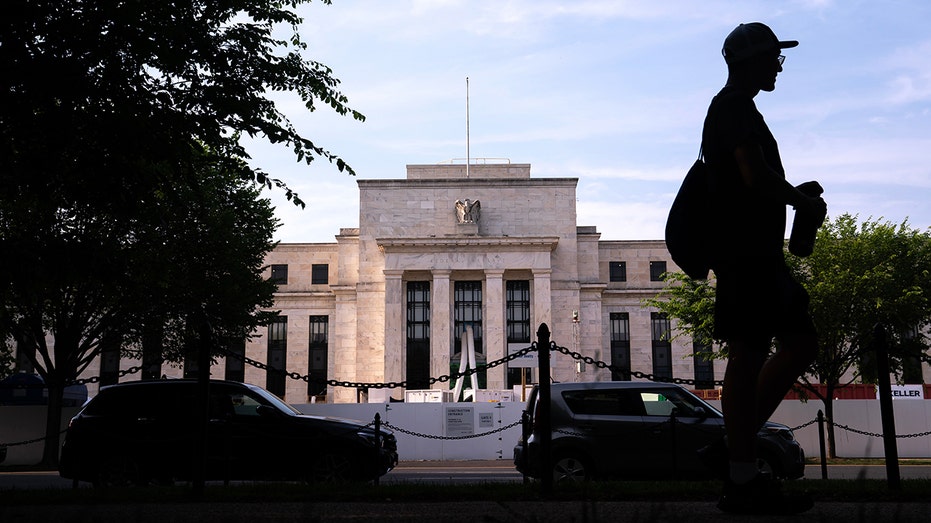Federal Reserve Governor Christopher Waller said Thursday that the financial markets have reacted to projected deficits under congressional Republicans’ tax cut package by demanding higher interest rates on U.S. debt issued in the Treasury markets.
Waller spoke exclusively to FOX Business’ Edward Lawrence on “Mornings with Maria” and said that the market thought the bill would do more in terms of paring back spending to reduce persistent budget deficits, but with deficits expected to widen if the bill becomes law, markets responded with higher yields on U.S. Treasurys.
“Everybody I’ve talked to in the financial markets, they’re staring at the bill and they thought it was going to be much more in terms of fiscal restraint, they’re not necessarily seeing it. And therefore there’s going to be a lot of issuance of Treasurys. And in order for them to buy these things, they want it at a lower price, and therefore, a higher yield,” Waller said.
Lawrence asked Waller if there is likely to be weaker demand for U.S. assets going forward, and the Fed governor responded, “There does seem to be a risk-off on American assets across the board, not just government debt, but everything. And whether that continues into the future or not, I don’t know.”
MOODY’S DOWNGRADED US CREDIT RATING: WHAT DOES THAT MEAN?
“I think as long as the economy kind of gets back on a good path, the economy starts growing, inflation stays down, you might see a resurge in demand for American assets,” he added.
The Treasury Department held a $16 billion sale of 20-year Treasury bonds on Wednesday that saw weak demand and spurred a sell-off in the stock market and dollar. Waller noted that the Fed is prohibited by Congress from stepping in to buy bonds during a primary auction.
“The markets are watching the fiscal policy with the bill that’s being put through the House and the Senate, and they have some concerns about whether it’s going to be reducing the deficit,” Waller said. “We ran $2 trillion deficits the last few years, this is just not sustainable, so the markets are looking for a little more fiscal discipline, they’re concerned, hopefully as the bill continues to go on they’ll be seen. But then the markets are just going to demand a premium for this.”
LARGER TAX-CUT PROPOSAL NOT ENOUGH TO OFFSET DRAG ON GROWTH FROM TARIFFS: GOLDMAN SACHS

Waller was also asked about the potential impact of President Donald Trump’s tariffs on inflation and consumer prices amid the Federal Reserve’s continued focus on getting inflation back to its 2% target rate. Tariffs are taxes on imports and businesses typically pass on some of the higher costs to consumers through higher prices, which in turn could push inflation data higher.
“Every CEO I’ve talked to said they can deal with a 10% tariff, they can’t deal with 25% very easily without passing that through or stopping other things,” Waller said. “I’ve been arguing this for over a year, since last June, that straight economics is this is a one-time price increase, it doesn’t cause persistent inflation.”
“The standard central bank playbook is you just look through this. You don’t overreact to it because you’re going to then raise rates, hurt the economy for something that’s just been a one-time price effect,” he added.
POWELL WARNS ECONOMY COULD FACE MORE FREQUENT ‘SUPPLY SHOCKS’
Trump has temporarily lowered tariffs on imports from many countries while his administration negotiates trade agreements, though officials have signaled that the 10% baseline tariff may remain in effect.
Waller said that a 10% tariff would be passed on to consumers to some extent, though he thinks it will only briefly push inflation higher before it begins receding again.
“It’ll have some pass through. Most of the firms I talked to, there’s this kind of simple rule of thumb: a third of it will be eaten by the supplier, a third of it will be eaten by the third and a third will get passed on,” Waller said.
“So if it’s a 10% tariff, imports are 10% of the price index, so 10% on 10% is a 1% increase in the price level,” he added. “That only means a third of it is going to get passed through, so instead of something like 2.5% you might see 2.8%, but that’s it and then inflation should start coming right back down.”


